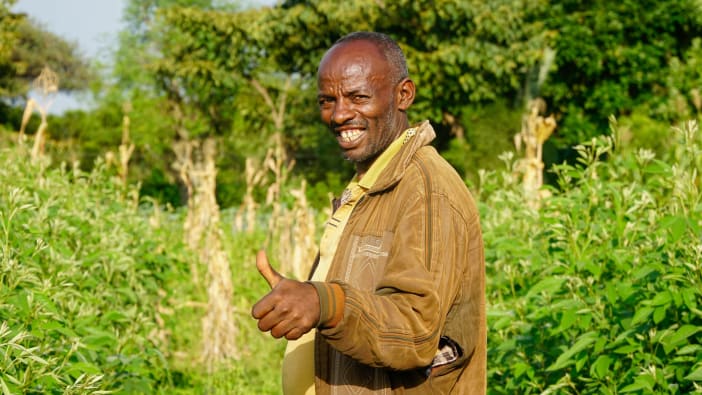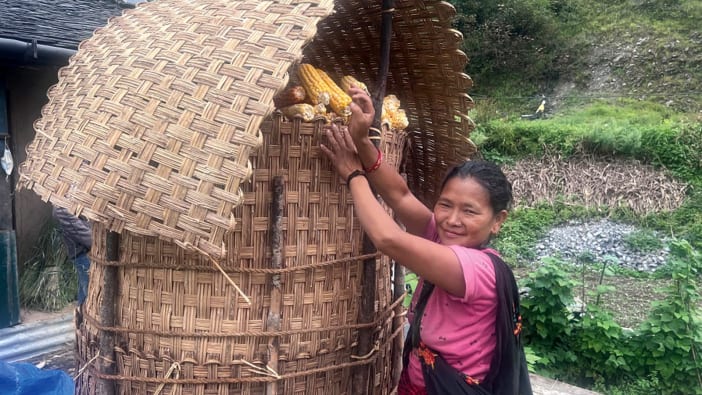Crops are like children. If they are given a good start in life they usually grow tall, strong and healthy. But if crops grow slowly after germination they often become stunted, are more likely to be damaged by pests and diseases and will yield less.
When seeds are sown, they have to absorb water from the soil before they germinate. This can take a long time. If this time is reduced by soaking the seeds before they are sown, germination happens more quickly, resulting in a more healthy crop. The idea of soaking seeds before sowing is not new. However, it is rarely practised on a regular basis because farmers are unsure of how long seeds should be soaked, leading to mixed success.
Researchers from the Centre for Arid Zone Studies looked at on-farm seed soaking in many countries. They calculated the length of time seeds could be soaked without damage for a wide range of crops. Once the safe limit for each crop had been identified, simple trials were carried out. The performance of the soaked seeds was compared with seeds that had not been soaked.
The results were remarkable. Farmers reported that crops from soaked seeds emerged faster and grew better. In many cases, crops matured earlier and gave higher yields. They also flowered earlier and in some cases less disease was reported. Sometimes the soaking gave no benefit, but it was never damaging. Since soaking is very low-cost and has many advantages, the practice can be seen as very helpful for farmers. Seed soaking has become very popular with the farmers who carried out the trials, along with their friends and neighbours, because it is simple, cheap and extremely effective.
Seed is usually soaked overnight and then sown the next day. Apart from swelling slightly and weighing more, soaked seed can be planted in the same way as seed that has not been soaked. If soaked seed is kept dry it can even be kept for several days before sowing. Using the recommended times in the table on page 3, a soaked seed will only germinate if it takes up additional moisture from the soil after sowing.
Farmers were encouraged to experiment with soaked and dry seeds. They visited each other’s fields to compare the performance of seed soaking over various soil types and levels of management. They discussed the strengths and weaknesses of the soaking technique and made improvements. By participating in the trials, the farmers were able to develop and adapt the seed soaking technique and to appreciate its effects.
Article adapted with permission from a research paper by Dr Dave Harris, DFID Plant Sciences Research Programme, Centre for Arid Zone Studies, University of Bangor, UK. Website: www.seedpriming.org









